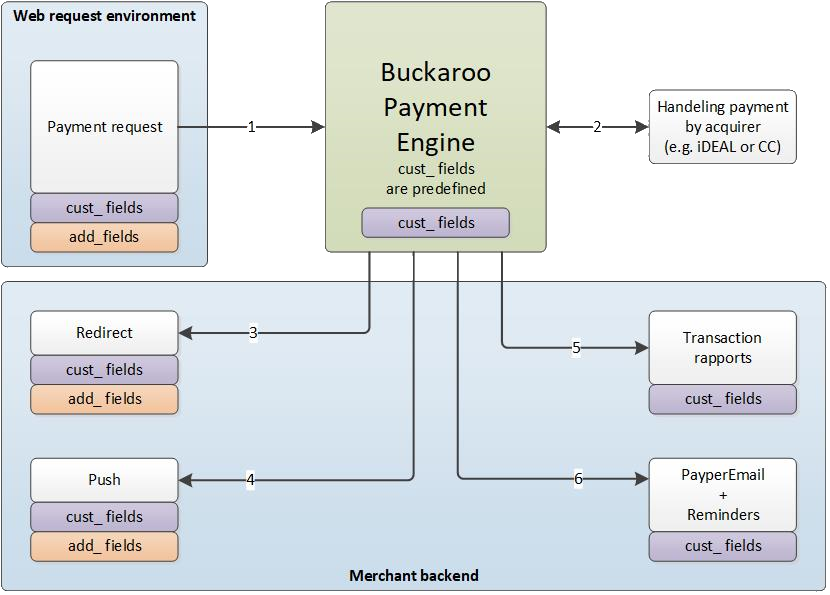Custom variables
In addition to Buckaroo variables, you can add merchant-related variables to each transaction request. These variables can be included in the response and push updates. There are two types of variables:
Custom variables
Configured in advance in the Payment Plaza, custom variables are visible and searchable. The syntax is cust_[variablename] (e.g., cust_event). Custom variables are case-sensitive.
NoteThe syntax
cust_[variablename]only applies to HTML and NVP gateways, as well as httppost-content-type Push, batch file column names and PPE or Transfer email templates in the Plaza. For an example of a JSON code snippet, check the bottom of this page.
Custom variables in JSON
"CustomParameters": {
"List": [
{
"Name": "name_of_the_plaza_field1",
"Value": "Example of field value"
},
{
"Name": "name_of_the_plaza_field2",
"Value": "600"
}
]
}Additional variables
Not configured in advance, additional variables are found in transaction details but are not searchable. The syntax is add_[variablename] (e.g., add_MyShopNumber).
NoteBoth custom and additional variables are optional and it is not mandatory to include these variables. Not entering these variables does not trigger an error message.
Additional variables in JSON
Transaction request:
"AdditionalParameters": {
"AdditionalParameter": [
{
"Name": "Country",
"Value": "Germany"
},
{
"Name": "ShopID",
"Value": "12345"
}
]
}Data request:
"AdditionalParameters": {
"List": [
{
"Name": "Country",
"Value": "Germany"
},
{
"Name": "ShopID",
"Value": "12345"
}
]
}Payment flow including variables
- Submit the transaction.
- Process the payment request.
- Redirect after payment attempt.
- Push the results of the payment attempt.
- Request a transaction report.
- Use variables in PayperEmails, reminders, letters, and text messages.

Updated 11 months ago